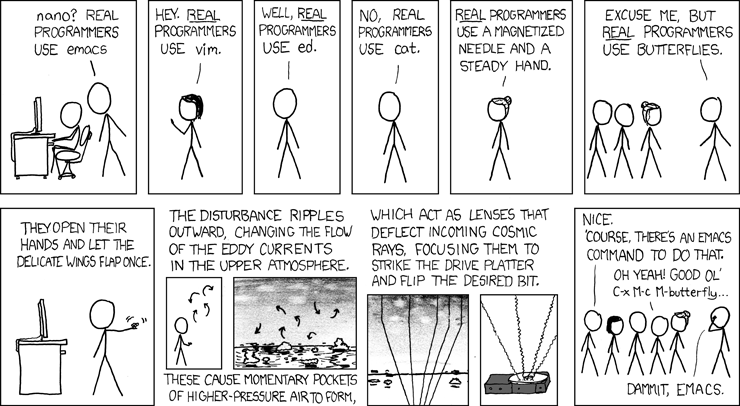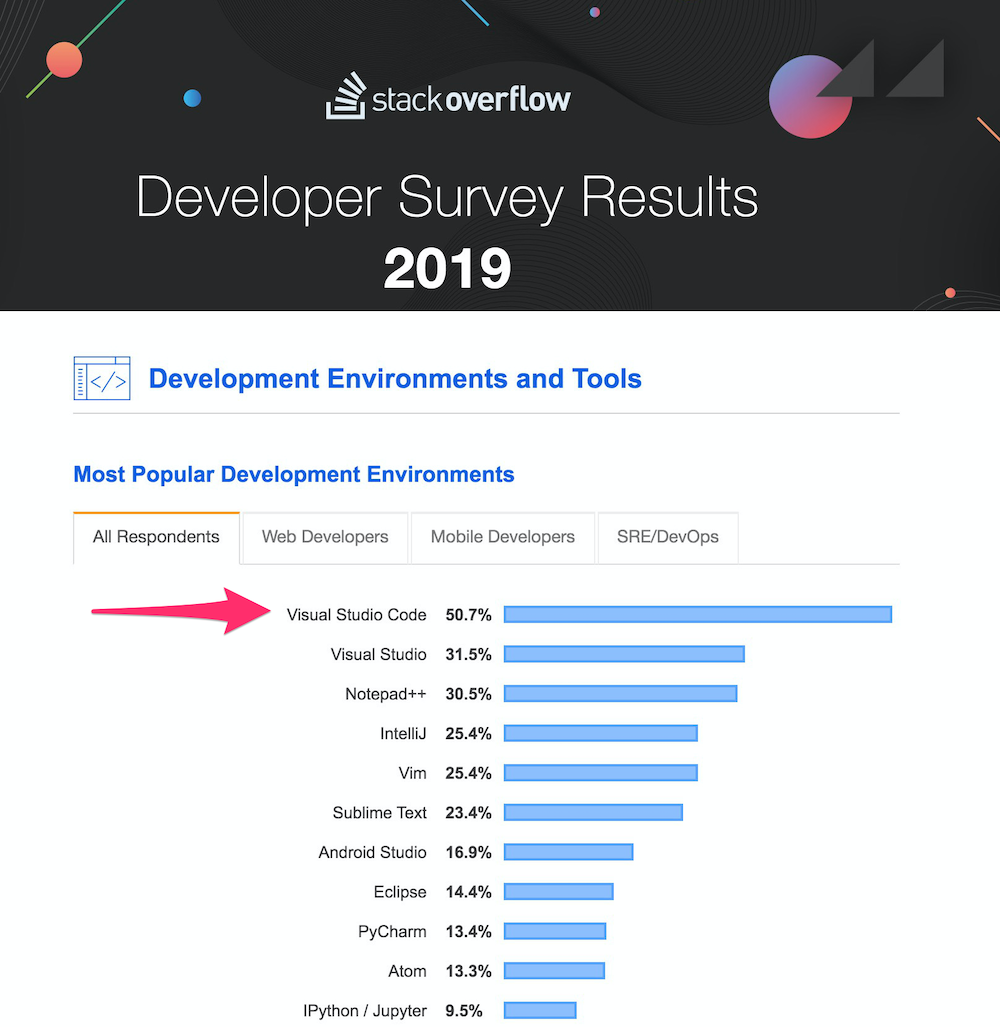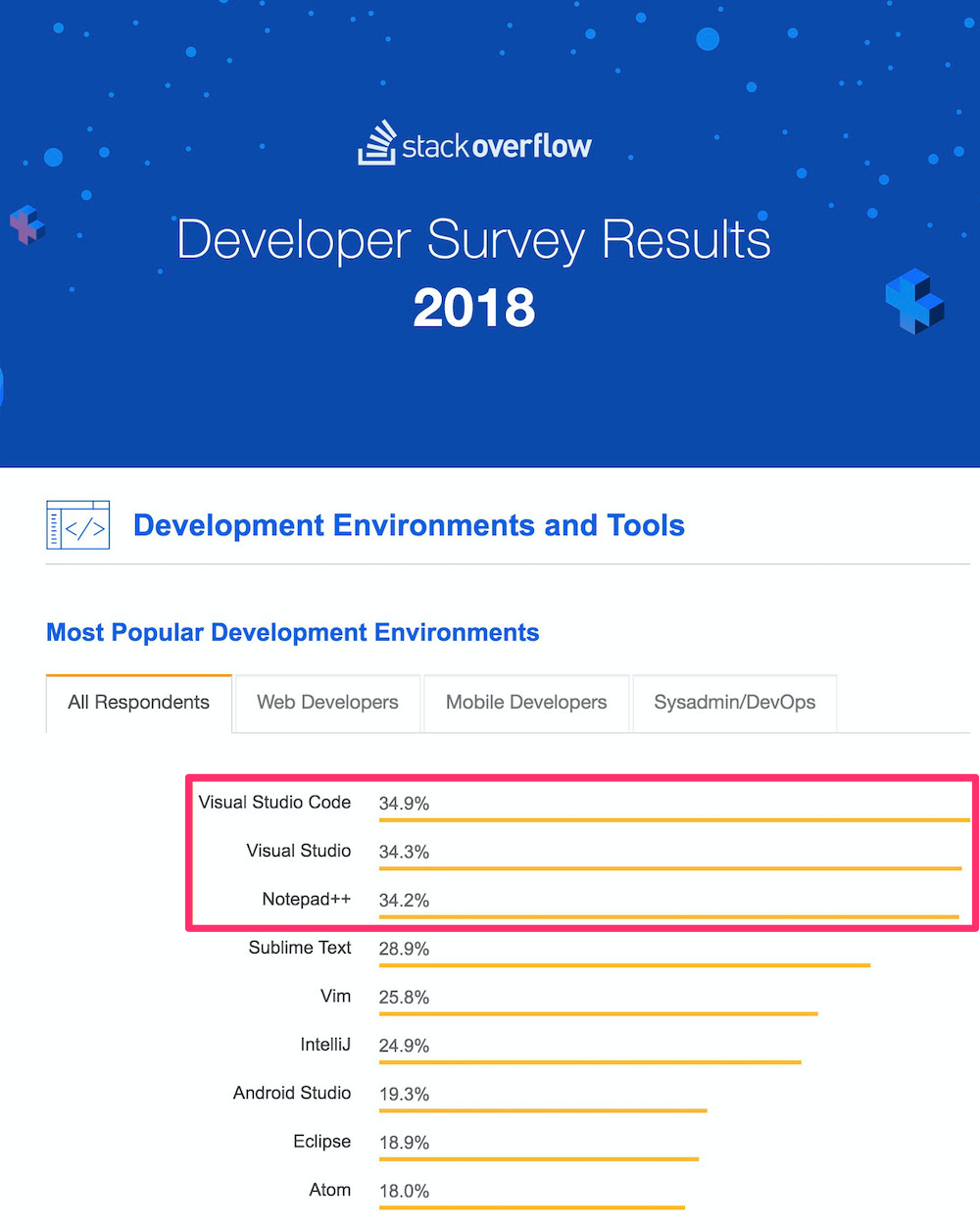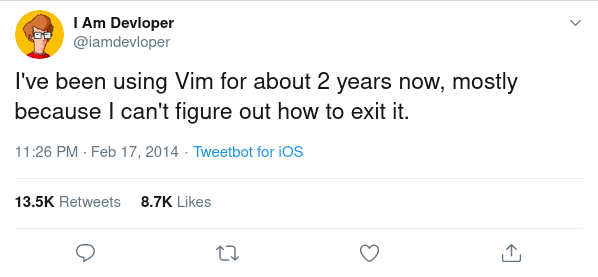Hey, check out my Modern Python Projects course. It's an extended version of this workshop!
Why VS Code?
Choosing a code editor
The code editor is one of the essential tools of every programmer. For most of us - this is where we spend most of our time at work. So choosing the right code editor is for some programmers a very sensitive topic. When I tell some people that I’m using VS Code still, from time to time, I hear: “What?! You say you care so much about productivity, and you use VS Code? Why don’t you use Vim or Emacs? Or swap bits with butterfly wings?”

Real programmers by XKCD: <https://xkcd.com/378/>
Luckily with the growing popularity of the VS Code, you can hear less and less of those comments. Speaking of popularity, the following chart is one of the main reasons why I will talk about the VS Code.

Source: https://insights.stackoverflow.com/survey/2019
This is the Stack Overflow Developer Survey that over 90 000 developers took in 2019. And according to this data, basically, every other developer is using VS Code. It’s insane. It’s the first time that I see such a vast difference between the 1st and 2nd most used code editors.
Previous years looked similar to the results of 2018, where there were usually 2 or 3 tools that were getting a similar amount of love:

Source: https://insights.stackoverflow.com/survey/2018
Sure, VS Code is not perfect, and no code editor is. Vim or Emacs will definitely be faster, and - if you spend enough time - with some plugins, you can make them look and do whatever you want. Some of the people that I worked with are more efficient with Vim or Emacs than I will ever be, no matter what code editor I use. But if you made a conscious decision to use Vim, then you probably don’t need this workshop anyway.

What I like about VS Code is that it strikes the right balance between productivity and beginner-friendliness. When you install it, you can start using it right away. And as you go, it will try to suggest some plugins and settings that you may want to use. Open your first Python file and it will suggest Python extension. Try to format the file and it will suggest to install flake8 or black formatter. That’s incredibly convenient!